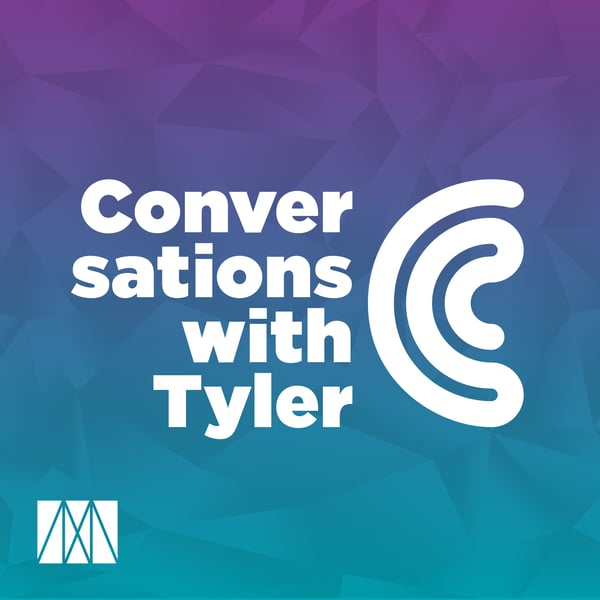Agnes Callard on the Theory of Everything
Conversations with Tyler
Conversations with Tyler
4.8 • 2.4K Ratings
🗓️ 11 April 2018
⏱️ 60 minutes
🧾️ Download transcript
Summary
Is a written dialogue the best way to learn from philosopher Agnes Callard?
If so, what does that say about philosophy? Is Plato’s Symposium about love or mere intoxication? If good people lived forever, would they be less bored than the bad people? Should we fear death? Is parenting undertheorized? Must philosophy rely on refutation? Should we read the classics? Is Jordan Peterson’s moralizing good? Should we take Socrates at his word? Is Hamlet a Cartesian? Are we all either Beethoven or Mozart people? How do we get ourselves to care about things we don’t yet care about? To what should we aspire to?
Read a full transcript enhanced with helpful links.
Recorded March 22nd, 2018
Other ways to connect
- Follow us on Twitter and Instagram
- Follow Tyler on Twitter
- Follow Agnes on Twitter
- Email us: [email protected]
- Subscribe at our newsletter page to have the latest Conversations with Tyler news sent straight to your inbox.
Transcript
Click on a timestamp to play from that location
| 0:00.0 | Conversations with Tyler is produced by the Mercatus Center at George Mason University, |
| 0:08.4 | bridging the gap between academic ideas and real-world problems. |
| 0:12.6 | Learn more at mercatis.org. |
| 0:15.2 | And for more conversations, including videos, transcripts, and upcoming dates, visit |
| 0:20.4 | ConversationsWithT Tyler.com. |
| 0:28.7 | Today I'm here with Agnes Callard, who is a philosopher at the University of Chicago. |
| 0:34.7 | She has a new book out called Asperation, the Agency of Becoming, but like a true philosopher, |
| 0:41.0 | she philosophizes about many things. |
| 0:43.3 | So let me just start with a simple question. |
| 0:46.7 | Why didn't Plato just write what he meant? |
| 0:49.0 | Why is there the form of a dialogue at all? |
| 0:52.5 | I think it's reasonable to conclude that one thing Plato meant to do was to preserve the |
| 0:59.2 | memory and the activity of Socrates. |
| 1:02.0 | So there was this guy, there was this amazing guy who walked around asking people questions |
| 1:07.1 | and thereby inventing a new way of thinking and a new way of life, but he didn't write |
| 1:12.8 | anything down. |
| 1:14.9 | And I think not just Plato, but a lot of people didn't want that to die with Socrates. |
| 1:19.7 | So I think that was one of Plato's motivations. |
| 1:22.9 | And yeah, what he did was a good way of achieving that goal. |
| 1:25.8 | But this Plato even likes Socrates. |
| 1:27.6 | So if I read these dialogues, it seems to me Socrates is full of fallacies. |
| 1:32.0 | I tend to side more with protagonists and with the sophists. |
... |
Please login to see the full transcript.
Disclaimer: The podcast and artwork embedded on this page are from Conversations with Tyler, and are the property of its owner and not affiliated with or endorsed by Tapesearch.
Generated transcripts are the property of Conversations with Tyler and are distributed freely under the Fair Use doctrine. Transcripts generated by Tapesearch are not guaranteed to be accurate.
Copyright © Tapesearch 2025.

